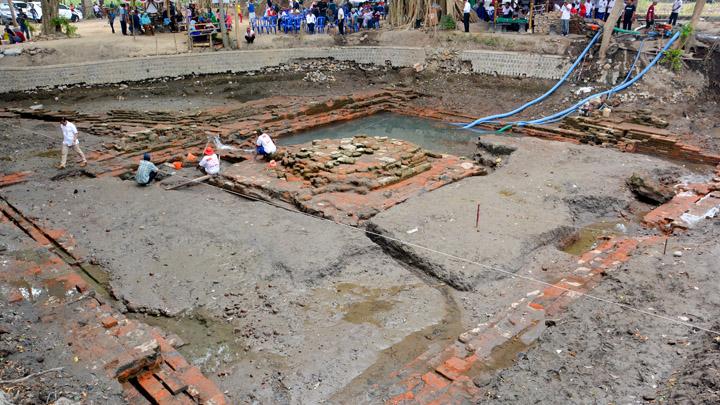
TEMPO.CO, Jakarta - Every day, Mariatun almost never gets a chance to take a break. In the morning, she and her husband would spend time in the Kapuas Hulu watershed (DAS) not far from their home in the Nanga Leboyan village, Kapus Hulu Regency, West Kalimantan. Until noon, the couple would catch fish from a lanting (raft) and place them in a rice sack. They would only go home once they feel they have caught enough fish, mostly toman (snakehead).
While her husband can immediately rest after, Mariatun must first prepare her fish to be sold. "I turn some into salted fish. The rest are smoked," said the 45-year-old woman.
Mariatun usually sells her salted fish for Rp35,000-45,000 per kilogram, while her smoked fish are sold for Rp120,000 per kilogram.
But since over a year ago, Mariatun has had more to do. Now she no longer only processes the fish into salted and smoked fish; she also turns them into various food products, such as nuggets, fish balls, sausages, crackers and dried fish flakes, known as abon.
Mariatun is not alone in her work. An additional 25 other fisherwomen, all Nanga Leboyan residents, also process their catch. The women are joined in the Danau Semangit Women’s Group. Members of the group are starting to acquire specific expertise in creating food products from fish, after receiving assistance from Konsorsium Dian Tama since September 2016. A number of NGOs are joined under the consortium led by the Dian Tama Foundation, namely Riak Bumi, Kaban, LPS-AIR, Kompak and Periau Danau Sentarum Association.
At first, Mariatun and her friends were trained on how to create various food products from fish. Besides knowledge, the Nanga Leboyan women were also given cooking and packaging equipment, such as a vacuum sealer. "We still use simple equipment such as woks, steamers and a machine for mincing fish," said Mariatun.
In the training, the consortium also invited the women fishers and farmers to be involved in the organization, stressing the importance of working with other fisherwomen and managing their funds together. "It’s nice to own your own business, but working with other women is also important to improve harmony," said Mariatun. When the group was formed, Mariatun became the person in charge of the group.
Involvement in an organization was nothing new for Mariatun, who was previously involved in the Leboyan Honey Farmers’ Group, also assisted by Dian Tama. But in this organization, only a handful of women were involved in management.
In her new fisherwomen’s group, Mariatun feels she is exposed to new experiences and challenges, especially because some of the group’s members are busy caring for their children and with household tasks. It is no wonder that five members have already left because they had trouble managing their time, although there were a few who expected instant profit. "In fact, any type of business requires time, and here we’re also learning organization skills," she said.
Almost every day, Mariatun and her group learn how to process fish into sausages and other food products, financing this endeavor from the money they make selling fish crackers. To make crackers, they need Rp160,000-320,000 for buying 25 kilograms of sago. Their raw crackers are then sold for Rp25,000-30,000 per kilogram.
Mariatun says her group has so far consumed their products themselves, although they do sell small amounts to their neighbors and in schools. The reason is that they cannot yet produce sausages, nuggets and other food products in large quantities every day. They are still improving recipes so that their snacks are consumer-worthy. "But this year, our target is to sell our group’s products to traditional markets in Kapuas Hulu," she explained.























